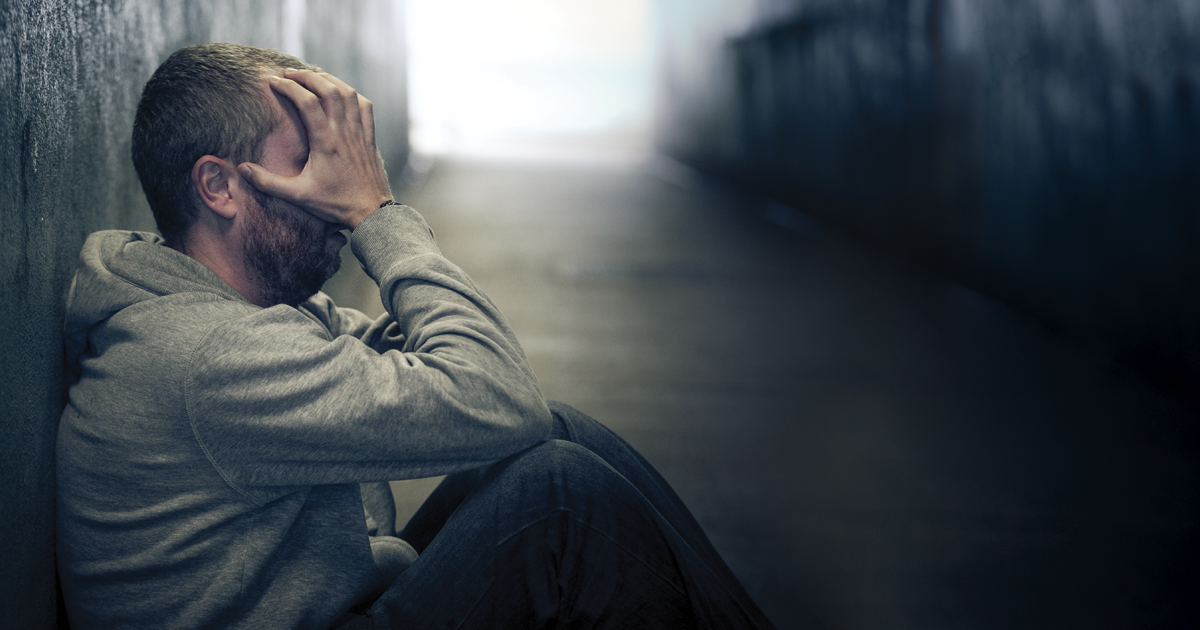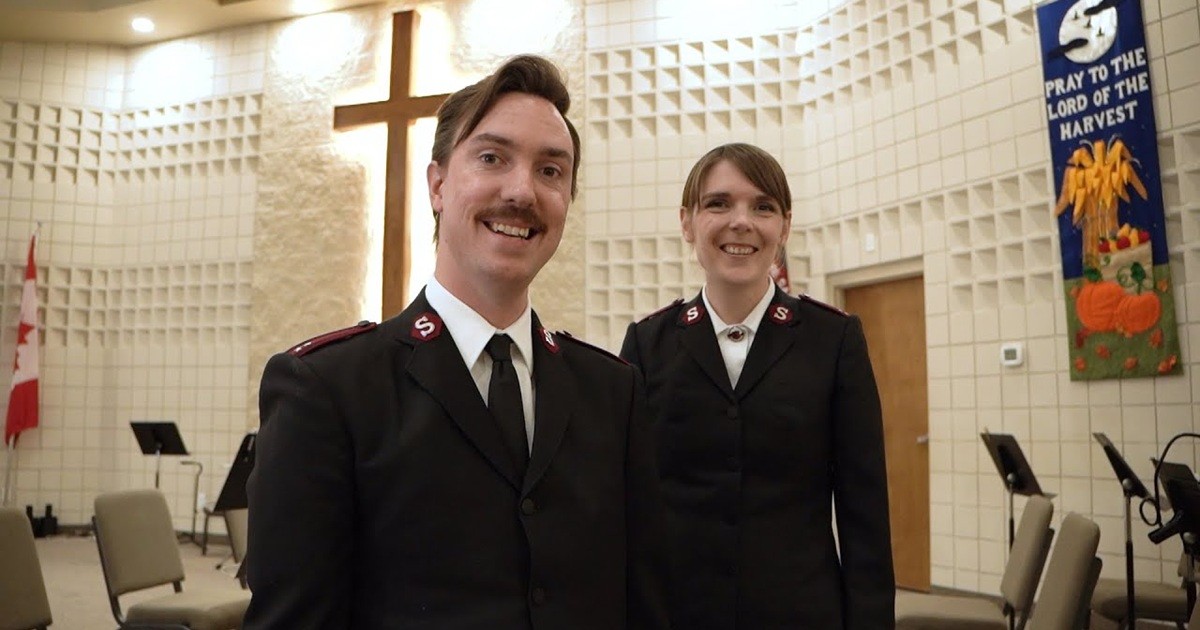Christians need a newspaper in one hand and a Bible in the other—according to theologian Karl Barth. In our Talking It Over series, James Read invites thoughtful Salvationists from around the world to reflect on moral and ethical issues. Here, he speaks with Roland Stettler about medical assistance in dying.
Roland, could I talk to you about “medical assistance in dying”? As you’re a psychiatrist, psychotherapist and treasured Salvationist friend, I know you will have insights to help my thinking.
A bit of background, first. In 2015, Canadian courts ruled that it was unconstitutional to prohibit all assisted suicide. As a result, in 2016 our federal government passed a law (nicknamed “MAiD”) that permitted physicians and nurse practitioners to “assist” the death of people suffering from an incurable medical condition when they are close to death. That law has been broadened in the intervening years, and advocates are urging that it be widened further.
As a doctor who lives outside Canada, what are your thoughts about this?
—Jim
When I read that death by MAiD had increased tenfold in six years—from 1,000 in 2016 to 10,000 in 2022—I found it incredible. I asked myself, “What is the motivation?” Not only in particular cases, but in your society, in relation to the understanding of a good process of dying. There doesn’t seem to be an open discussion about dying as the last part of living.
—Roland
I’d like to pick that up later and unpack what you mean, but right now I am interested in your opinion about the latest changes to the law. In 2024, the law is likely to say that people who are suffering grievously and irremediably from a mental illness would be eligible for MAiD. Up to this point, candidates for “medical assistance in dying” have had to have a physiological illness such as incurable cancer or ALS (amyotrophic lateral sclerosis). Those advocating for this next change contend there is no reason to exclude those whose condition is mental illness—their suffering can be just as agonizing and can endure with no end in sight. What is your view?
—Jim
Mental illnesses can undoubtedly cause a great deal of suffering and are, at times, very difficult to bear for those affected. This may understandably lead patients to conclude they would rather die than continue to live like this.
But in comparison to physical illness—and this is a key difference—it is much more difficult to say that any mental illness is incurable. Hopelessness and lack of perspective are often to be understood as a symptom of the underlying mental illness (classically, depression). Even after suffering for several years, people can recover. In every situation you can have hope. Rather, we have to ask ourselves whether the patientis receiving treatment appropriate to his or her situation. So, as a psychiatrist, I could never predict that a patient’s illness is irremediable.
In addition, there are issues about decision-making. People suffering from a severe mental illness often experience a narrowing of their thinking, so that there are well-founded concerns as to whether their decision to end their life through MAiD can be considered an autonomous decision, and to what extent they are also considered competent in a legal sense. They are not then making decisions that take account of their lives as a whole (which for me is core to the idea of autonomy) but are fixed on the moment presently before them. Perhaps 10 percent have deliberated autonomously and made a “rational suicide,” but who is going to differentiate this and say whether the person seeking assistance in ending their life is among this 10 percent?
— Roland
Just to be clear, although Canada’s MAiD law is called “assistance in dying,” almost all of those who receive MAiD do not die by their own action—in 99 percent of cases, a physician ends their life for them. For me, this has been a profoundly troubling development. When I wrote my doctoral dissertation at the University of California, Los Angeles, on the moral wrongness of killing patients, I did not imagine that within 30 years health professionals would begin to believe that it was ethical for them to intentionally terminate the life of their patients. It seems to fly in the face of what the medical and nursing professions are for. Yet here we are. How does it feel to you?
—Jim
I was astonished to learn this. As a doctor, I can’t understand how one could be involved and call it a medical intervention. As you know, we have a law in Switzerland that permits assisted suicide. The person who takes this route does not have to be ill or dying, but they do have to take the life-ending drug on their own. There are difficult situations, but for me there is a difference between assisted suicide and active euthanasia—and it is euthanasia when a doctor purposely gives someone a lethal injection. As a Christian and a doctor, I don’t think that is right and it is not a border I want to cross.
—Roland
You would probably be legally protected in Canada and not obligated to euthanize anyone, but I don’t think that an appeal to Christian beliefs and values carries any weight in Canadian law. God simply doesn’t come into the equation. This means that when The Salvation Army registered its objection to MAiD before it became law in 2016, it needed to make a different kind of argument. It argued for more and better palliative care resources. The Army had several hospices at that time and knew that people who were at the end of their life because of advancing and incurable disease could experience a good death if they were surrounded with nurses, doctors, spiritual-care providers and others who knew how to care when they could not cure.
It had been found that people who asked for their life to be ended frequently were fearing loss of dignity more than excruciating pain or other intractable symptoms.
—Jim
Although we cannot lose our God-given dignity, people have deep in their brains the idea that they can. This idea, though false, can be reinforced by the way others regard them. Others can treat people (those who are sick, dying or disabled, for instance) in an undignified fashion—not respecting them, not validating their worth. People who live with disabilities, experiencing this disrespect, may feel indirect pressure to seek MAiD.
—Roland
As you know, I am married to a nurse who has specialized in palliative care, and her experience is that it takes time and resources to explore what it means to preserve the dignity of a person who is at the end of their life. When people are given this opportunity, however, amazingly good things can happen, and not only for the person who is dying. The social family is incorporated into good palliative care. So, even if suffering persists, when death occurs, it is a death that is good not only for the one who dies but for the family, too.
MAiD cuts in a different direction and presents dying as purely an individual matter. The law requires the uncoerced consent of the person seeking MAiD, and no one else. Family don’t need to be consulted; they don’t even need to be informed.
—Jim
I think that makes sense to those of us who live in and are shaped by a hyper-individualized society. The ideal in such societies is that we are not deeply connected with others, even with others in our family. We are alone. This way of thinking poses a special risk for those who are not used to being dependent on others, especially women. They may think that by choosing MAiD, I am being empathetic; I won’t be a burden. I think this could explain the stories I was reading of Canadians seeking MAiD because they couldn’t find housing suitable for their needs, and those wanting MAiD because the medications for their illness are too expensive.
As a Christian community, are we any different? Have we, too, lost a sense of solidarity? We are taught that we must be genuinely interested in our neighbour. Christianity teaches that no one should have the sense that they are all on their own, and no one should live with the sense that they are a burden. But is that the way we actually live?
—Roland
This brings us back to the question you raised at the beginning, whether there was an open discussion in Canada about what constitutes a good dying process. Many would say that a good dying process is self-directed—the individual remains in ultimate control and death is painlessly provided at the time of their choosing by a doctor willing to comply with their request.
I would also say that, although this attitude feels at odds with Christian values, there is little talk in church about a better alternative. We need to resurrect an old tradition and learn a “Christian art of dying” (as professor of theological ethics Allen Verhey titled a book). What would go into it would be complex—I am not imagining another territorial program—but it would be a worthwhile topic for another conversation, wouldn’t it? Meanwhile, the deeply Christian words of the poet John Donne echo in my ears: “Never send to know for whom the bell tolls; it tolls for thee…. No man is an island, entire of itself; every man is a piece of the continent, a part of the main.”
—Jim
Dr. James Read, OF, was the executive director of The Salvation Army’s Ethics Centre for many years and served as chair of the International Moral and Social Issues Council. Now retired, he attends Heritage Park Temple in Winnipeg. Dr. Roland Stettler is the corps sergeant-major at Basel Corps in Switzerland.
This story is from:










I've come 180 degrees on this topic over the last few years. Our movement should not be lobbying the government for the rejection of MAiD, or for its acceptance. We don't have a right to impose our beliefs on others with respect to medically assisted dying. There are rigorous standards in place to be sure that the person is giving informed consent and not suffering from a mental health crisis. We can't just say, well we believe that a person should 'die well', so your personal suffering is not a factor in this decision. It's really that person's right to choose and the healthcare professional's right to decide to assist them. If there was a situation where a healthcare worker was forced to assist a person to end their life against their conscience, that would be wrong. But as far as I know, this is not happening. PERSONALLY, my Christian beliefs inform my opinion that I would not choose a medically assisted death for myself (though I say this now while in good health). In that same spirit of freedom that allows me to live out my Christian beliefs, I also wish that same spirit of freedom for people to do otherwise. And lastly, not to complicate the issue, but there are people of faith who have chosen a medically assisted death for themselves. I will not pass judgment on them or their faith. Nor will I say that Christians can only hold one view on this.